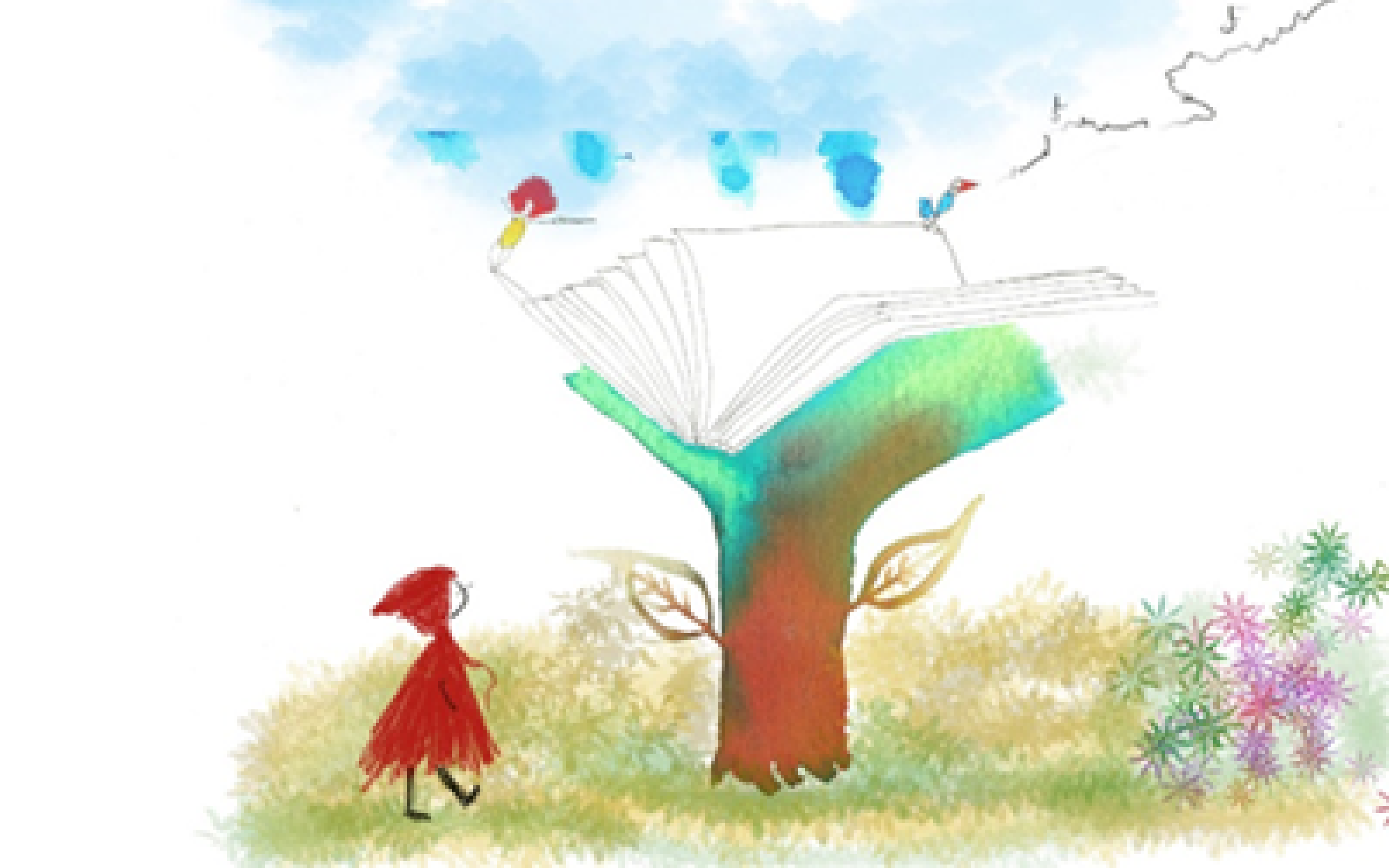Abstract
The Curriculum Guidelines for Pre-School Education (Lopes da Silva et al., 2016) underline, as a foundational principle, the imperative to respond to all children, recognizing the importance of building an inclusive environment that values diversity. The aim of this presentation is to present and reflect on actions developed as part of supervised educational practice (SEP) in pre-school education (EPE), with an emphasis on the promotion of story time as an activity that promotes inclusion and respect for diversity.
The SEP involved a heterogeneous group of children, aged between three and six, with diverse social, cultural and linguistic backgrounds, attending an EPE setting that is part of the Educational Territories of Priority Intervention Program, as well as two students attending a Professional Master's Degree in Pre-School Education and their mentors. As part of the action-research process, the data was collected through observation, field notes in the logbook and photographic records, combined with continuous processes of reflection. The analysis of the results obtained led the students to verify the group's growing involvement and well-being at reading times, as well as a greater interest in exploring the library area and getting involved in writing activities. It is important to note that the children in the group with different nationalities also showed greater participation and motivation to experience reading moments, which until the adoption of inclusive strategies were not very enjoyable moments for them. These action-research processes created the conditions for a differentiated pedagogical practice focused on the needs of each child and the group, promoting equal opportunities and the professional and personal development of the trainees.
References
Associação de Profissionais de Educação de Infância (2011). Carta de princípios dos associados da APEI para a tomada de decisão eticamente situada. https://apei.pt/wp-content/uploads/2019/11/carta-de-principios.pdf
Araújo, S. (2009). Avaliação da qualidade no âmbito do DQP: Um contributo para uma pedagogia da diversidade?. In J. Oliveira-Formosinho (Coord.), Desenvolvendo a Qualidade em Parcerias - Estudos de Caso (pp. 231-250). Ministério da Educação / Direção-Geral da Inovação e de Desenvolvimento Curricular. https://www.dge.mec.pt/sites/default/files/EInfancia/documentos/dqp_estudos_ casos.pdf
Bacelar, M. (2022). O dinossauro. Porto Editora.
Caetano, A. P. (2019). A ética na investigação-ação: Alguns apontamentos de reflexão. Estreiadiálogos. Revista da Rede Internacional de Investigação-Ação Colaborativa, (4) 1, 53-72. http://hdl.handle.net/10451/43855
Cavalcanti, J. (2002). Caminhos da literatura infantil e juvenil. Paulus.
Coutinho, C. P., Sousa, A., Dias, A., Bessa, F., Ferreira, M. J., & Vieira, S. (2009). Investigação-ação: Metodologia preferencial nas práticas educativas. Psicologia, Educação e Cultura, 13 (2), 455-479. http://hdl.handle.net/1822/10148
Direção Geral de Educação (s.d.). Programa Territórios Educativos de Intervenção Prioritária. Direção Geral de Educação https://www.dge.mec.pt/teip
Direção Geral de Saúde (2021/2022). Referencial escolas: Controlo da transmissão de COVID-19 em contexto escolar. Direção Geral de Saúde. https://www.dgs.pt/documentos-referencial20212022
Donaldson, J. (2014). O Grufalão. Jacarandá Editora
Estrela, A. (1990). Teoria e Prática de Observação de Classes: uma Estratégia de Formação de Professores (3ª ed.). Instituto Nacional de Investigação Científica.
European Early Childhood Education Research Association (2015). EECERA Ethical Code for Early Childhood Researchers. http://eeceraext.tandf.co.uk/documents/pdf/organisation/EECERA-Ethical-Code.pdf
Frota, S., Esteve-Gibert, N., Molnar, M., & Vigário, M. (2023). Editorial: Language development behind the mask. Front Psychology. 14, 1-3. https://doi.org/10.3389/fpsyg.2023.1205215
Gomes, J. A., & Macedo, A. C. (2013). Educação literária (1º ciclo) e lugar da escrita de Sidónio Muralha na formação de leitores. NELA.
Graham, A., Powell, M., Taylor, N., Anderson, D., & Fitzgerald, R. (2013). Ethical research involving children. UNICEF Office of Research - Innocenti.
Hohmann, M., & Weikart, D. (2004). Educar a criança (3ª ed.). Fundação Calouste Gulbenkian.
Kendon, A. (2000). Language and gesture: Unity or duality? In D. McNeill (Ed.), Language and Gesture. Language, Culture and Cognition (pp. 47-63). Cambridge University Press.
Laevers, F., Daems, M., Bruyckere, G., Declercq, B., Moons, J., Silkens, K., Snoeck, G., & Van Kessel, M. (2005). Well-being and involvement in care: a process-oriented self-evaluation instrument for care settings. Kind & Gezin and Research Centre for Experiential Education.
Laevers, F., & Declercq, B. (2018). How well‐being and involvement fit into the commitment to children’s rights. European Journal of Education, 53(3), 325-335. https://doi.org/10.1111/ejed.12286
Lalonde, K., Buss, E., Miller, M., & Leibold, L. (2022). Face Masks Impact Auditory and Audiovisual Consonant Recognition in Children With and Without Hearing Loss. Front Psychology. 13. https://doi.org/10.3389/fpsyg.2022.874345
Lino, D. (2013). O modelo pedagógico de Reggio Emilia. In J. Oliveira-Formosinho (Org), Modelos Curriculares para a Educação de Infância. Construindo uma práxis de participação (pp. 109-140). Porto Editora.
Lopes da Silva, I., Marques, L., Mata, L., & Rosa, M. (2016). Orientações curriculares para a educação pré-escolar. Ministério da Educação/ Direção Geral da Educação (DGE).
Mata, L. (2008). A descoberta da escrita: Textos de apoio para educadores de infância. DGIDC. http://cefopna.edu.pt/portal/images/documentos/OCEPE/A_Descoberta_da_Escrita.pdf
Máximo-Esteves, L. (2008). Visão panorâmica da investigação-ação. Porto Editora.
Mcniff, J., & Whitehead, J. (2011). All you need to know about action research (2ª ed.). SAGE.
National Research Council (2008). Começar com o pé direito: um guia para promover o sucesso na leitura. Porto Editora.
Oliveira-Formosinho, J. (2007). Pedagogia(s) da infância: Reconstruindo uma práxis de participação. In J. Oliveira-Formosinho (Org.), Modelos curriculares para a educação de infância: construindo uma práxis de participação (3ª ed.), (pp. 13-42). Artmed.
Oliveira-Formosinho, J., & Formosinho, J. (2013). A perspetiva educativa da Associação Criança: A Pedagogia-em-Participação. In J. Oliveira-
Formosinho (Org.), Modelos curriculares para a Educação de Infância. Construindo uma práxis de participação (pp. 25-60). Porto Editora.
Organização das Nações Unidas (2019). Convenção sobre os Direitos da Criança e Protocolos Facultativos. UNICEF. https://www.unicef.pt/media/2766/unicef_convenc-a-o_dos_direitos_da_crianca.pdf
Rosen, M. (2004). Vamos à caça do urso. Editorial Caminho.
Sobrino, J. G. (2000). A criança e o livro: A aventura de ler. Porto Editora.
Sousa, A. B. (2003). Educação pela arte e artes na educação (2ªed). Instituto Piaget.

This work is licensed under a Creative Commons Attribution-NoDerivatives 4.0 International License.
